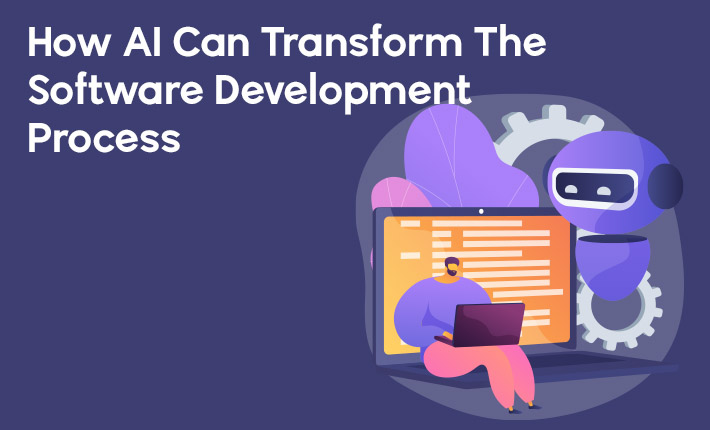Artificial Intelligence (AI) has revolutionized various industries, and software development is no exception. With its ability to analyze vast amounts of data, automate repetitive tasks, and make intelligent decisions, AI is transforming the software development process. In this article, we will explore how AI can revolutionize software development, from improving efficiency and accuracy to enhancing productivity and innovation. By harnessing the power of AI, developers can streamline their workflows, create more robust and intelligent applications, and unlock new possibilities in the ever-evolving world of software development.
1. Automated Code Generation: AI can automate the process of generating code, saving developers time and effort. Machine learning algorithms can analyze existing codebases and generate code snippets or entire modules based on patterns and best practices. This not only accelerates development but also reduces the likelihood of human errors and inconsistencies in the codebase.
2. Bug Detection and Debugging: AI-powered tools can help identify and resolve bugs in software applications. By analyzing code patterns, execution flows, and data inputs, AI algorithms can detect anomalies, potential errors, and performance bottlenecks. This helps developers catch and fix bugs early in the development process, leading to more robust and reliable software.
3. Intelligent Testing and Quality Assurance: AI can enhance testing and quality assurance processes by automating test case generation, predicting potential failure points, and optimizing test coverage. Machine learning algorithms can learn from historical data and user feedback to identify critical areas to focus testing efforts. AI-powered testing tools can also simulate real-world scenarios, enabling comprehensive testing and ensuring software reliability.
4. Natural Language Processing (NLP) for Requirements Analysis: AI-powered natural language processing (NLP) techniques can be employed to analyze and extract requirements from textual documents or user inputs. By understanding the semantics and intent of user requirements, AI systems can assist in the accurate interpretation and translation of user needs into software features, improving the alignment between user expectations and the final product.
5. Intelligent Project Management and Planning: AI can optimize project management and planning processes by analyzing historical project data, resource allocation, and task dependencies. Machine learning algorithms can provide insights and recommendations on project timelines, resource allocation, and potential risks. AI-powered project management tools can also assist in task prioritization, resource optimization, and progress tracking.
6. Predictive Analytics for User Behavior: AI can leverage predictive analytics to gain insights into user behavior and preferences. By analyzing user interactions, AI algorithms can identify patterns, predict user needs, and recommend personalized features or content. This helps in designing user-centric software solutions, improving user experience, and driving user engagement.
7. Continuous Integration and Deployment: AI can automate and optimize the continuous integration and deployment (CI/CD) process. Machine learning algorithms can analyze code changes, run automated tests, and identify potential issues in the deployment pipeline. AI-powered CI/CD systems can help streamline the release process, reduce errors, and ensure faster and more reliable software deployments.
8. Intelligent Code Reviews: AI-powered tools can assist in code reviews by automatically analyzing code quality, adherence to coding standards, and identifying potential vulnerabilities or security risks. AI algorithms can provide suggestions for code improvements, highlight problematic areas, and ensure compliance with best practices and industry standards.
9. Smart Documentation Generation: AI can simplify and enhance the process of documentation generation. Natural language processing algorithms can analyze code and automatically generate documentation, including API references, code explanations, and usage examples. This saves developers time and effort in manually documenting their code and helps maintain up-to-date documentation.
10. Agile Development and Resource Allocation: AI can support agile development methodologies by providing insights into resource allocation, task prioritization, and project scheduling. Machine learning algorithms can analyze historical data, team performance, and project requirements to recommend optimal resource allocation and task assignments. This helps teams optimize their workflows, improve productivity, and adapt to changing project needs.
11. Intelligent User Assistance and Chatbots: AI-powered chatbots and virtual assistants can provide intelligent user assistance throughout the software development process. These bots can answer common user queries, provide troubleshooting guidance, and offer real-time support. By leveraging natural language processing and machine learning, these assistants can improve user satisfaction, reduce support costs, and enhance the overall user experience.
12. Data-driven Decision Making: AI enables data-driven decision making in software development. By analyzing vast amounts of data, including user feedback, performance metrics, and market trends, AI algorithms can provide insights and recommendations for product enhancements, feature prioritization, and future development directions. This helps teams make informed decisions based on objective data, increasing the likelihood of success.
Conclusion:
Artificial Intelligence is revolutionizing the software development process by automating tasks, improving accuracy, enhancing productivity, and enabling data-driven decision making. From automated code generation to intelligent testing, project management, and user assistance, AI offers numerous benefits to developers and organizations. By harnessing the power of AI, software development teams can streamline their workflows, deliver high-quality applications, and adapt to the ever-changing demands of the digital landscape. As AI continues to advance, its integration into the software development process will unlock new possibilities, drive innovation, and shape the future of software development.















Post Comments